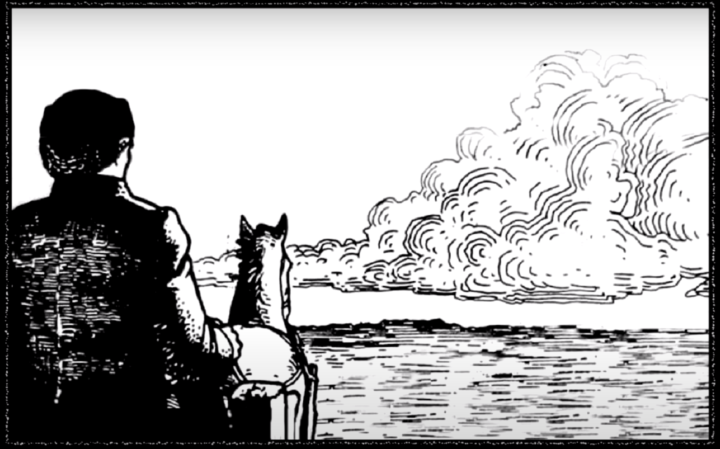Our “modern” society is facing many challenges, each one as important as the next: the environment, economy, violence, health, education, security, energy, food, concentration of capital, unemployment, etc. It seems every social leader and politician has plans to respond to these challenges and knows exactly how to solve them. For good reason, very few people believe them anymore, and so the crisis of distrust grows day by day. How did we get so disoriented? When did we lose our compass?
Imagine asking your friends a very simple question: “What do you truly need?” Notice how long it takes for them to answer this basic reflection. How could we really live a harmonious life without knowing and thinking about our fundamental needs?
Among the practices of Silo’s Message, there is a meditational ceremony called “The Service” that focuses on working with our internal energy (force). At the close of the experience, participants are asked to reflect: “With this Force that we have received, let us concentrate our minds on the fulfillment of what we truly need…” In his first public speech, called “The Healing of Suffering,” Silo told the story of a rider’s journey, which ends with this paragraph: “At daybreak he sacrificed the cart of Desire. It is true that when he did so he lost the wheel of Pleasure, but then he also lost the wheel of Suffering. And so, abandoning the cart of Desire, he mounted the animal called Necessity and galloped on its back across the green fields until he reached his destiny.” (See below for the complete story.)
Let’s pause a minute. “What we truly need” is not about what we want or what we desire but what we really need. In our culture, it’s easier to know what we desire than knowing and connecting with what we really need. Our society is set up to sell us what we want and don’t need. It is the magic of this system; we have shops, services, websites, politicians, banks, etc., ready to respond to our craziest desire. But how many people get what they want and are happy? How many people feel that they don’t have enough and should have more?
Dr. Robert Lustig, in his book “The Hacking of the American Mind,” explains the scientific difference between pleasure and happiness, showing the consequences of our cultural confusion in the pursuit of pleasure, and linking it to addiction, depression and chronic disease.
If we had the chance to transform our culture, based on our understanding and our experiences, it could start by applying this simple phrase: “Let us concentrate our minds on the fulfillment of what we truly need…”. Imagine building a new society where everyone works together towards the fulfillment of what we truly need… from the personal to the communal to the global. It would make everything so much easier, more profound, and much more meaningful.
As the proverb says, “Necessity is the mother of invention.” So let’s invent something together! How about a real democracy, one focused on organizing active citizen participation in the construction of a society based on the fulfillment of what we all truly need. Isn’t it better than drowning in this egocentric, pretentious, formal democracy manipulated by the selfish interest of a small minority? Can we just concentrate our minds on what we truly need?
___-____-_____
I would like to tell you a story that took place long ago.
There was once a traveler who had to undertake a long journey. He yoked his animal to a cart and began the journey to his faraway destination, a journey he had to complete within a certain length of time. He called the animal Necessity and the cart Desire; one wheel of the cart he called Pleasure, and the other he called Pain. Our traveler turned his cart sometimes to the right and sometimes to the left, yet he never ceased moving toward his destiny. The faster the cart traveled, the faster turned the wheels of Pleasure and Pain, carrying as they did the cart of Desire and connected as they were by the same axle.
But the journey was very long, and after a time our traveler grew bored. So he decided to decorate his cart, and he began to adorn it with all manner of beautiful things. But the more he embellished the cart of Desire with these ornaments, the heavier became the load for Necessity to pull. On the curves and steep hills of the road, the poor animal grew too exhausted to pull the cart of Desire. And where the road was soft, the wheels of Pleasure and Suffering became mired in the earth.
One day, because the road was long and he was still very far from his destination, our traveler grew desperate. That night he decided to meditate on the problem, and in the midst of his meditation he heard the neighing of his old friend, Necessity. Comprehending the message, he arose very early the next morning and began to lighten the cart of its burden, stripping it of all its fine adornments. Then he set off once more toward his destination, with the animal Necessity pulling the cart at a brisk trot. Still, our traveler had already lost much time—time that was now irrecoverable. The next night he sat down again to meditate, and he realized, thanks to another message from his old friend, that now he had to undertake a task that was doubly difficult because it involved his letting go.
At daybreak he sacrificed the cart of Desire. It is true that when he did so he lost the wheel of Pleasure, but then he also lost the wheel of Suffering. And so, abandoning the cart of Desire, he mounted the animal called Necessity and galloped on its back across the green fields until he reached his destiny.






